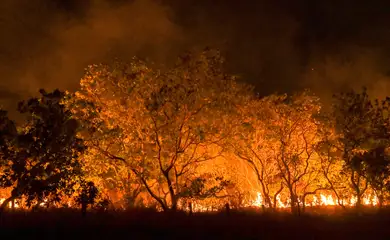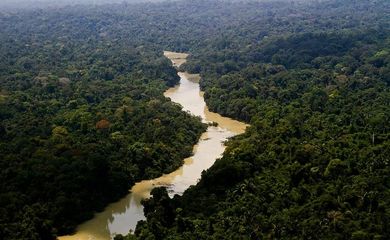Drying rivers boost illegal hunting, fishing in Amazon

Johnatan Santos, the director of environmental inspection at the Brazilian Institute for the Environment and Renewable Natural Resources (IBAMA), stated in an interview with TV Brasil that the drought aggravated by climate change has contributed to a rise in illegal hunting and fishing of endangered species in the Amazon.

“Because of the low water levels, it's easier for criminals to see the animals and capture them quickly,” he said.
The statement followed the seizure of a slaughtered Amazonian manatee (Trichechus inunguis) along the banks of the Tefé River in Amazonas state last Tuesday (24).
The operation promoted by the environmental agency also seized 422 kg of pirarucu meat (Arapaima gigas) being sold at the Tefé Municipal Fair, without proof of origin from authorized management.
According to Santos, the escalation of predatory activities threatens the potential extinction of these animals in the medium to long term.
“If the manatee becomes extinct, it will create a significant imbalance in the aquatic ecosystem, as the manatee plays a vital role in the food chain,” he explains.
The crimes were reported by non-governmental organizations and the Chico Mendes Institute for Biodiversity Conservation (ICMBio) unit operating in the region. According to IBAMA, these offenses have already led to fines totaling BRL 12,000.
“Ibama collaborates with other agencies to monitor the rivers, tracking water quality, temperature, and flow. Additionally, it oversees activities that could exacerbate the situation—not just regarding water levels but mainly concerning aquatic fauna and illegal mining that has disrupted the rivers' courses,” explains Santos.
The inspection agencies have revealed that offenders utilize fishing nets, harpoons, hammers, and even firearms for illegal hunting and fishing. The meat from these animals is then processed in unauthorized facilities and sold in the market.
“Ibama has been carrying out inspections at strategic points where hunting is more intense and poses risks to the life balance of these animals,” says the director.
According to Santos, given the vastness of the Amazon Basin, it is essential for rain to return across the region to restore the rivers' water levels and exceed the historically low volumes recorded in various areas of the Amazon.
“We hope that by the end of October, the rain will come and the rivers can return to their normal levels,” concludes Santos.




